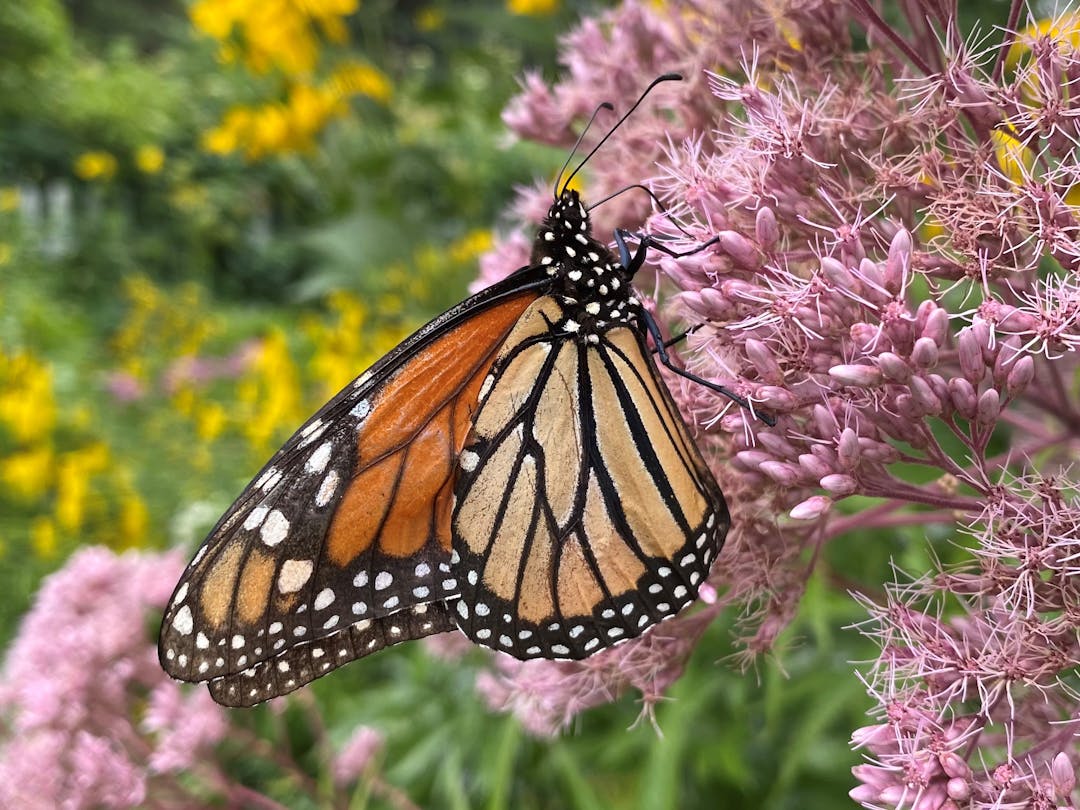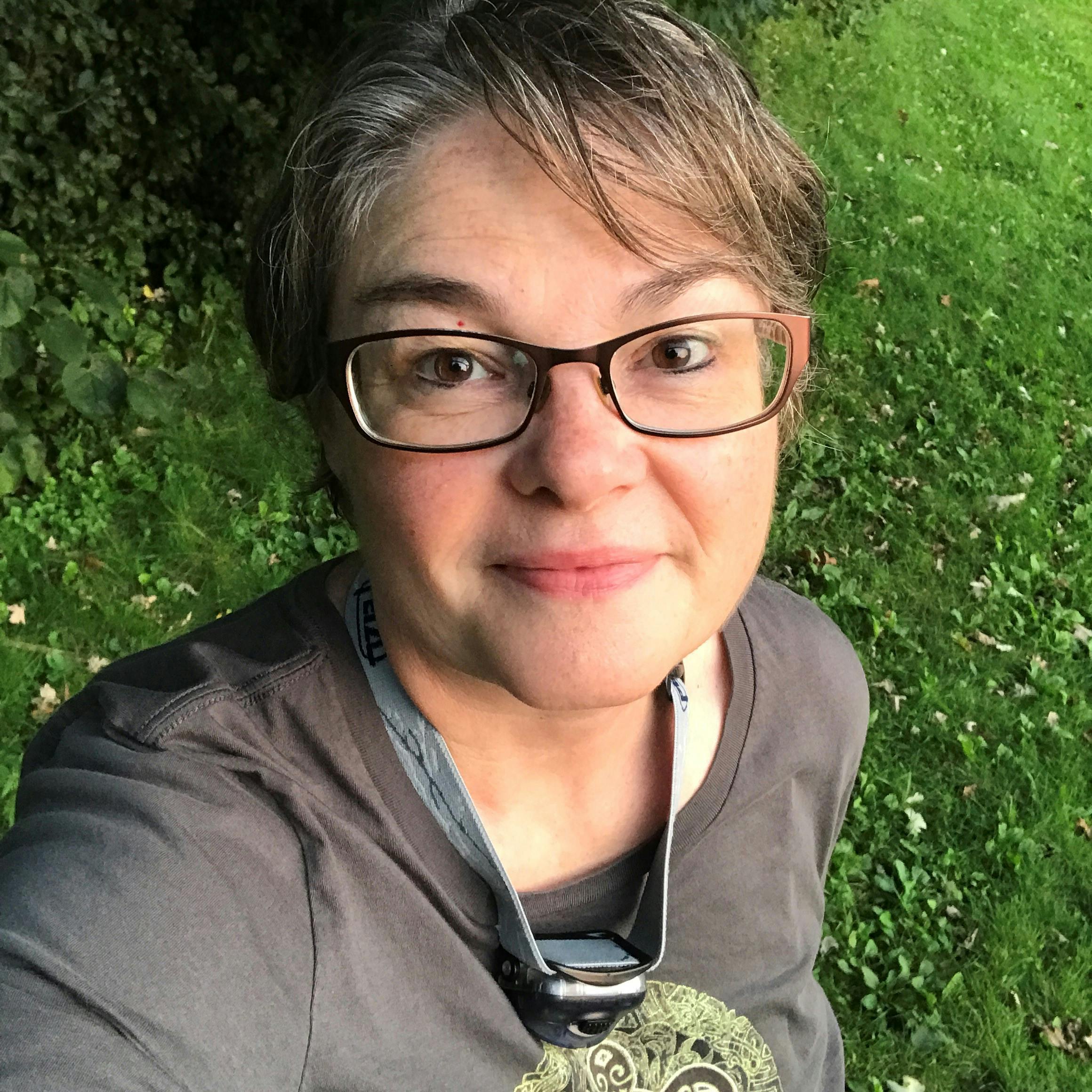Resilient Minnetonka

When it comes to our community and the natural environment, few ideas are more important than resilience. And few are as urgent. The Resilient Minnetonka program offers education and resources, technical assistance and incentives to help residents:
- identify goals for resilience in their yards
- overcome barriers
- and seek funding to implement those goals.
To learn more...
- Explore our Resilient Minnetonka orientation module to find out more about the program, see how you might participate, get inspiration for projects. Applications are accepted through the module, annually between April 1-Sept. 30.
- Just want to use the online native plant sale? Visit that page here. Open April 1-Sept. 30.
When it comes to our community and the natural environment, few ideas are more important than resilience. And few are as urgent. The Resilient Minnetonka program offers education and resources, technical assistance and incentives to help residents:
- identify goals for resilience in their yards
- overcome barriers
- and seek funding to implement those goals.
To learn more...
- Explore our Resilient Minnetonka orientation module to find out more about the program, see how you might participate, get inspiration for projects. Applications are accepted through the module, annually between April 1-Sept. 30.
- Just want to use the online native plant sale? Visit that page here. Open April 1-Sept. 30.
-
Workshops & Education
Share Workshops & Education on Facebook Share Workshops & Education on Twitter Share Workshops & Education on Linkedin Email Workshops & Education linkThis list includes upcoming in-person and virtual workshops, as well as resources you can explore at your own pace.
Upcoming Workshops & Presentations - Click to see details and register. Advance registration is required for all events.
- Garlic Mustard workshop - Tuesday, May 6, 6:30-8 p.m.
- Rain Garden Basics workshop - Thursday, June 5, 6:30-8 p.m.
- Native Edible Plants workshop - Thursday, July 10, 6:30-8 p.m.
- Managing Buckthorn workshop - coming this fall!
Learning Modules & Videos- invest a few hours at your convenience to explore these for deeper learning.
- Winning the Battle Against Buckthorn learning module
- Buckthorn workshop video
- Controlling Garlic Mustard learning module
- Garlic mustard workshop video
- Blue Thumb Online Learning Series, including modules on Resilient Yards, Turf Alternatives, Seed Saving, and Resilient Shorelines.
- Raingardens and Shoreline Buffers workshop video
- Raingarden Maintenance video
- How to Seed and Plant Your Project video from MNL
- How to Plant a Containerized Tree video
Another option... Volunteer with us!
- Volunteering is a great way to learn new skills you can apply at home, while helping the community and meeting new people. Volunteer events typically take place between April and November. Advance registration is required.
-
Resource Library
Share Resource Library on Facebook Share Resource Library on Twitter Share Resource Library on Linkedin Email Resource Library linkA wide range of information is available here - please explore each section!
Background information
- Less lawn for a healthier Minnetonka
- Cues to care
- Got buckthorn?
- Learning to identify buckthorn
- Options for reducing your lawn
- Why native plants?
- The benefits of native plants
- Native plant nurseries and landscape services
- Getting a soil test
- Find your property lines
- Have utilities marked before you dig (Gopher State One Call)
Design Tips & Templates
- Create your garden plan
- Principles and design for residential pollinator habitat
- Plan a project
- Pollinator garden design tool
- Shade garden design template
- Rain garden design template
- Sunny and short design template
- Soft landings planting design (under trees)
Installation & Maintenance
- Calculate the number of plants needed for your project
- How to install and maintain native plant habitat
- Starting from scratch - how to design a wildlife-friendly landscape from the ground up
- Installing turf alternatives
- Pollinator garden maintenance
- Maintain your rain garden
- How to germinate native seeds
- Seasonal care of trees in different life stages
Plant Lists
“Right plant, right place” is a popular gardening tip – and for good reason! Each species is adapted for particular growing conditions of light, soil type, moisture and space. Instead of choosing plants and then finding a space for them, start with the space and pick plants most likely to thrive there.
- Using hardiness zones in climate-smart gardening
- MN Native Plant Encyclopedia
- Minnesota Wildflowers online field guide
- The Best Plants for 30 Tough Sites
- Blue Thumb Plant Finder
- Xerces Society plant finder
- Native plants by bloom time
- Choosing low-growing native plants
- Low-growing plants for sunny sites
- Native plants for wetlands
- Rain garden options
- Shade garden options
- Gardening in the shade
- Ground cover species
- Container garden species
- Buckthorn replacement species
- Ash replacement list
- Plant lists, fact sheets and posters
- Best native yard trees for our changing climate
- List of climate-adapted urban tree species
- Choosing the right tree or shrub for your area
- Trees and shrubs for pollinators
Focus on Habitat
Plants and soil are the beginning of food webs in our yards and natural areas – they are the source of nutrition for animals, from pollinators and other invertebrates to birds and diverse wildlife, in all their life stages. The following resources can help you build those food webs and create essential habitat to support a complex and fascinating food web in your home landscape.
- Nesting and overwintering habitat for bees
- Yard best management practices for pollinators
- Trees and shrubs for pollinators
- Gardening for monarchs
- Plant milkweed for monarchs
- Plants favored by the rusty-patched bumble bee
- List of priority plants for pollinators
- What are keystone plants?
- Container gardening with keystone plants
- Keystone plants by ecoregion
-
Sales & Incentives
Share Sales & Incentives on Facebook Share Sales & Incentives on Twitter Share Sales & Incentives on Linkedin Email Sales & Incentives linkIncentives are options that help to reduce the cost of actions for resilience.
Native plant sale runs Apr.-Sept. – This sale is offered online through our partners at MNL (a Minnesota-based native plant nursery). You'll find plant plugs and seed mixes for a variety of growing conditions. Pricing is discounted from retail for Minnetonka residents, and pricing for plant trays includes shipping. Discount coupons are available to Minnetonka residents, while funding lasts. Visit sale website for more information.
Compost bin sale – Begin making soil from your kitchen and yard waste. Compost bins are offered at a reduce price (compared to retail) - contact Christine at 952-988-8442 to request information and pricing.
- Tree and Shrub sale – Diverse shrubs and trees are available at a reduced price through this lottery-based sale, which usually starts in April. Watch the Minnetonka Memo for updates, or subscribe to the Natural Resources monthly e-bulletin.
-
Technical Assistance
Share Technical Assistance on Facebook Share Technical Assistance on Twitter Share Technical Assistance on Linkedin Email Technical Assistance linkSite Consultation
A site consultation is a free, one-hour visit to your property, where an expert can help you begin to identify and prioritize ways to build resilience into your landscape. While funding lasts, site consultations may be provided through the city or your watershed district, and are scheduled in blocks through the growing season (typically May-Sept.).
If you’d like to request a site consultation or learn more about this option, please complete a Resilient Minnetonka application and the program coordinator will get back to you with more information.
Residential Buckthorn Pick-up
Are you planning to remove buckthorn on your property this year? Good for you!
1. Please start on the Workshops & Education tab, where you’ll find links to our online learning module (available any time) and our buckthorn workshop (video available any time; in-person workshops held every March, September and October) to learn the most effective strategies for success. Good planning is crucial!
2. Anticipate the need to replant or seed into buckthorn control areas, to reduce resprouting and weedy growth in the area. See our native plant sale for options.
3. Decide how to manage the debris. Options include:
- Haul the debris to the city's brush disposal site (open seasonally).
- Keep the wood for woodworking or landscaping projects.
- Use the stems to stabilize slopes on your property.
- Request a buckthorn pick-up from the city – This option is free, and is offered periodically through the year. Here's what you need to know about this option:
- Buckthorn pick-ups are scheduled several times a year, between April and November - we are not able to offer pick-up on demand.
- City staff will assign each participating address one pick-up date per year; additional pick-ups may be available but are not guaranteed.
- Pick-ups are for buckthorn only - debris piles may not include other plants or debris.
- Remove buckthorn only on your property, not on neighboring private property or city property. Contact city staff for tips about locating property lines.
- Cut buckthorn to lengths of 6 feet or smaller.
- Store buckthorn debris out of sight of the street (in compliance with city code 835.015) until your pick-up has been scheduled. Then follow the instructions provided by city staff to prepare for your pick-up.
If you are able to meet these criteria and would like to request a pick-up, please complete a Resilient Minnetonka application (available Apr. 1-Sept.30) and the program coordinator will get back to you.
-
Funding Options
Share Funding Options on Facebook Share Funding Options on Twitter Share Funding Options on Linkedin Email Funding Options linkFunding may be available from a variety of sources, such as those listed below. Some of these offer a little help - but others can take a big dent out of your project cost.
As you plan your efforts for resilience, keep in mind that most grantors must review proposed projects to approve eligibility (rather than reimbursing for projects already started or done) - so it's best to explore funding options in advance.
Pro tip: In many years, funding goes unused because there weren't enough applicants. (That is often the case with the city's rebate.) It's definitely worth the time to apply!
- The city offers a limited rebate, open to residents who have a site consultation through Resilient Minnetonka and install eligible plants or seed mixes. See the Technical Assistance tab for information on site consultations.
- The state's Lawns to Legumes program offers cost-share grants twice a year. Check that program's website for application deadlines.
-
Some watershed districts offer cost-share grants or other technical assistance.
-
Use this interactive map to find your district, then check their website for grant information.
- Nine Mile Creek Watershed District - offers grants for residential, association and commercial properties
- Riley Purgatory Bluff Creek Watershed District - offers grants for residential, association and commercial properties
- Minnehaha Creek Watershed District - no residential funding at this time.
- Bassett Creek Water Management Organization - no residential funding at this time
-
Use this interactive map to find your district, then check their website for grant information.
- Hennepin County offers the Good Steward Grant for larger projects that benefit natural resources on private property (including single-family residences, associations and apartment complexes) - check the site for application information and deadlines.
Who's Listening
-
Natural Resources Engagement Coordinator

Phone 952-988-8442 Email cpetersen@minnetonkamn.gov
